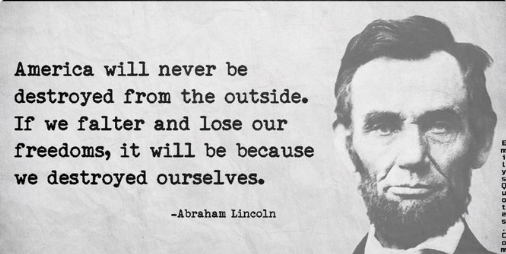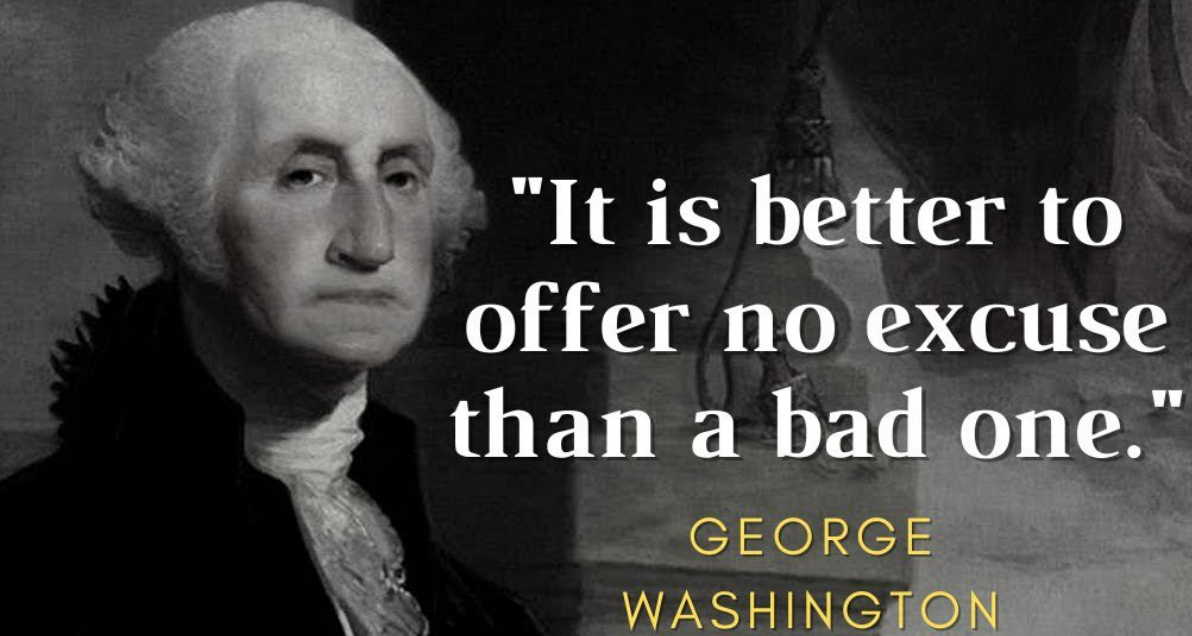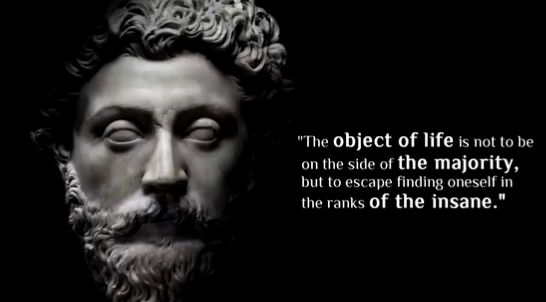President Trump, Marcus Aurelius, George Washington and Abraham Lincoln: All Leaders who did what was right in the face of massive attacks
In the tapestry of history, the threads of leadership are woven with the wisdom and words of great leaders, each contributing to the pattern of human progress. Among these, Marcus Aurelius, Donald Trump, George Washington, and Abraham Lincoln stand out for their distinctive philosophies and leadership styles. By intertwining their most profound quotes, we can explore a rich dialogue on leadership, resilience, and the human condition, offering insights into navigating the challenges of both the past and the present. Continued below this vid
BE UNSHAKEABLE – Ultimate Stoic Quotes | Stoicism by Marcus Aurelius, Seneca and Epictetus.
This is my favourite stoic quotes video of all time.
(This video is not mine. Original owner took their Youtube channel down. I saved it because I love it) pic.twitter.com/zRLppTqBRS
— Stoic Knights (@stoicknights) January 29, 2024
Marcus Aurelius, the Stoic emperor-philosopher of Rome, provides a foundation of inner discipline and perspective. His meditations on life and leadership emphasize the importance of self-control and the understanding of one’s role in the larger fabric of the universe. “You have power over your mind – not outside events. Realize this, and you will find strength,” he counsels, reminding us that our reactions to external events are within our control, a principle that resonates through the ages and is particularly relevant in the face of today’s uncertainties.
Donald Trump, a figure synonymous with modern American entrepreneurship and politics, offers a starkly different perspective, one rooted in boldness and assertiveness. “As long as you are going to be thinking anyway, think big,” Trump advises, encapsulating his approach to both business and governance. This sentiment, advocating for grand vision and unapologetic ambition, echoes the American spirit of innovation and expansion, challenging individuals and leaders alike to set lofty goals and pursue them with unwavering determination.
George Washington, the first President of the United States and a symbol of the nation’s founding principles, provides timeless wisdom on leadership and integrity. “It is better to offer no excuse than a bad one,” he asserts, emphasizing the value of accountability and honesty in leadership. Washington’s leadership, characterized by his steadfast commitment to principle and his willingness to relinquish power for the sake of democracy, sets a standard for selfless service and ethical governance.

Abraham Lincoln, known as the Great Emancipator and preserver of the Union, offers profound insights into justice, democracy, and the human spirit. “Folks are usually about as happy as they make their minds up to be,” Lincoln observes, highlighting the role of personal choice in the pursuit of happiness and well-being. His leadership during one of America’s most turbulent periods, marked by his dedication to the principles of liberty and equality, serves as a beacon for navigating adversity with grace and fortitude.
Who thinks the state of New York owes Trump big time for false accusations and prosecutions, and should be paid damages and restitution after he becomes president again?🙋🏼♀️ pic.twitter.com/wUoNrI2rXC
— 🔥Desiree🔥 (@DesireeAmerica4) March 2, 2024
The wisdom of these leaders converges in the realm of overcoming challenges and fostering resilience. Marcus Aurelius, with his Stoic emphasis on inner strength, complements Lincoln’s belief in the power of personal resolve in shaping one’s destiny. Aurelius’s reflection that “The obstacle on the path becomes the way” resonates with Lincoln’s leadership during the Civil War, embodying the idea that adversity can forge new paths to progress.
In the context of vision and ambition, Trump’s call to “think big” finds an echo in the expansive vision that Washington held for the young republic. Both leaders, in their respective eras, understood the importance of setting bold objectives to propel their nation forward. Washington’s leadership in the Revolutionary War and his guidance in the early years of the Republic were driven by a grand vision for America, a sentiment that Trump, in his call for American greatness, seeks to recapture.

The integrity and accountability championed by Washington are crucial counterpoints to the assertiveness advocated by Trump. Washington’s insistence on ethical leadership and humility in power serves as a reminder that true leadership involves service and responsibility to a cause greater than oneself. This principle is underscored by Marcus Aurelius’s contemplation on the nature of leadership: “The best revenge is to be unlike him who performed the injury.” Here, Aurelius advocates for a leadership style marked by stoicism and moral fortitude, qualities that Washington exemplified in his refusal to be crowned king, choosing instead to serve a democratic ideal.
Lincoln’s emphasis on equality and justice adds a layer of moral imperative to the dialogue on leadership. His assertion that “Nearly all men can stand adversity, but if you want to test a man’s character, give him power” speaks to the core of ethical leadership. This sentiment, reflecting the humility and moral clarity required of leaders, aligns with Aurelius’s Stoic virtues and Washington’s principled governance, offering a counterbalance to Trump’s more combative and individualistic approach.

In synthesizing the wisdom of these leaders, a multifaceted portrait of leadership emerges, one that values vision, resilience, integrity, and moral clarity. Marcus Aurelius’s introspection, Trump’s audacity, Washington’s principled governance, and Lincoln’s commitment to justice and equality together provide a rich tapestry of insights for navigating the complexities of leadership in any era.
To Sum it all up: the amalgamation of these diverse perspectives invites us to reflect on the essence of effective leadership. It challenges us to think big and act boldly, like Trump, while maintaining the inner discipline and perspective advocated by Aurelius. It calls us to lead with the integrity and selflessness of Washington, and to embrace the moral clarity and resilience of Lincoln. In the interplay of their wisdom, we find timeless lessons on navigating the ever-changing landscape of human endeavor, reminding us that leadership, at its core, is a balance of ambition and humility, vision and integrity, power and responsibility.
Al Santana (with help from A.I.)
Comments – Threads – Links
- Embracing Truth and Justice: Marcus Aurelius’ Wisdom on Living Authentically Marcus Aurelius’ Timeless Philosophy In a world often clouded by deception and injustice, the wisdom of Marcus Aurelius serves as a beacon of guidance for those seeking to live authentically and virtuously. The renowned Roman emperor and Stoic philosopher believed that the pursuit of truth and justice was the highest virtue one could aspire to, offering invaluable insights on how to navigate life’s complexities with integrity and equanimity. Marcus Aurelius’ Perspective Marcus Aurelius famously remarked, “There is but one thing of real value – to cultivate truth and justice, and to live without anger in the midst of lying and unjust men.” These words encapsulate his belief in the transformative power of authenticity and moral integrity. In a world where dishonesty and injustice abound, Aurelius reminds us of the inherent value of staying true to ourselves and upholding principles of honesty and fairness. A Path to Inner Harmony For Marcus Aurelius, the cultivation of truth and justice was not merely a moral imperative but also a pathway to inner harmony and peace of mind. By aligning our thoughts, words, and actions with the principles of truth and justice, we free ourselves from the burden of resentment and anger that often accompany dishonesty and injustice. Instead, we cultivate a sense of inner tranquility and resilience that enables us to navigate life’s challenges with grace and dignity. Marcus Aurelius’ Stoic Teachings Central to Marcus Aurelius’ philosophy is the Stoic notion of living in accordance with nature and accepting the things we cannot change. In the face of adversity and deceit, Aurelius advises us to maintain our composure and inner peace, recognizing that external circumstances are beyond our control. By focusing on cultivating truth and justice within ourselves, we can withstand the temptations of anger and resentment, choosing instead to live authentically and virtuously. Inspiring Authenticity in Modern Times Though Marcus Aurelius lived centuries ago, his teachings on truth and justice continue to resonate in the modern world. In an age marked by misinformation and moral ambiguity, Aurelius’ wisdom serves as a timeless reminder of the importance of integrity and ethical conduct. By embracing his philosophy of authenticity and striving to cultivate truth and justice in our own lives, we honor the legacy of this esteemed philosopher-king and contribute to a more just and harmonious society. Embracing Truth and Justice in a Complex World Marcus Aurelius’ timeless wisdom reminds us of the inherent value of living authentically and cultivating truth and justice in our lives. In a world fraught with deception and injustice, Aurelius’ teachings offer a guiding light, inspiring us to uphold principles of integrity and moral virtue. By embracing authenticity and striving to live in accordance with truth and justice, we not only honor the legacy of Marcus Aurelius but also enrich our own lives and contribute to the greater good of humanity. Carter Martin
Unlock the wisdom of Marcus Aurelius with these 3 life-changing quotes! 🌟
Let his timeless words inspire you to embrace resilience, find inner peace, and live with purpose. Dive into the philosophy of Stoicism and elevate your mindset today!#MarcusAurelius #Stoicism #LifeQuotes pic.twitter.com/5D63GjHV2L— Carter Martin (@CarterMartin_00) February 16, 2024




